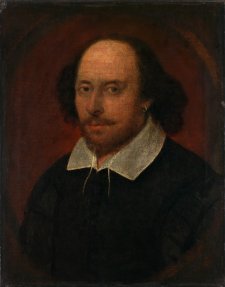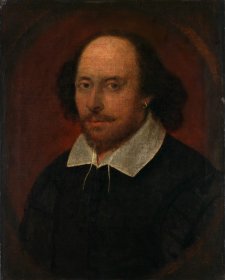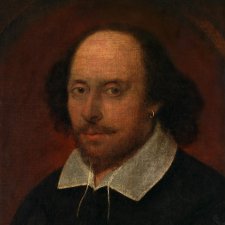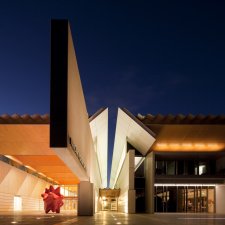- About us
- Support the Gallery
- Venue hire
- Publications
- Research library
- Organisation chart
- Employment
- Contact us
- Make a booking
- Onsite programs
- Online programs
- School visit information
- Learning resources
- Little Darlings
- Professional learning
This work is probably the last, and arguably the finest, of Van Dyck’s seven known self portraits. He is shown in the act of painting, the line of his arm suggesting his hand is raised in the process of applying paint to a canvas. The marked contrast between the broad and rapid handling of the costume and the high level of finish in the face may suggest that the costume is unfinished, or that this self portrait is more experimental than his grand commissioned works. The frame of this painting, crested with the sunflower motif associated with the artist, is of outstanding importance and is likely to have been designed with van Dyck’s involvement.
National Portrait Gallery, London.
Purchased with support from the National Lottery Heritage Fund, the Art Fund in honour of David Verey CBE (Chairman of the Art Fund 2004-2014), the Portrait Fund, The Monument Trust, the Garfield Weston Foundation, the Aldama Foundation, the Deborah Loeb Brice Foundation, Sir Harry Djanogly CBE, Mr and Mrs Michael Farmer. Matthew Freud, Catherine Green, Dr Bendor Grosvenor, Alexander Kahane, the Catherine Lewis Foundation, the Material World Foundation, The Sir Denis Mahon Charitable Trust, Cynthia Lovelace Sears, two major supporters who wish to remain anonymous, and many contributions from the public following a joint appeal by the National Portrait Gallery and the Art Fund, 2014
© National Portrait Gallery, London



Joanna Gilmour travels through time to explore the National Portrait Gallery London’s masterpieces in Shakespeare to Winehouse.



Visit us, learn with us, support us or work with us! Here’s a range of information about planning your visit, our history and more!



We depend on your support to keep creating our programs, exhibitions, publications and building the amazing portrait collection!